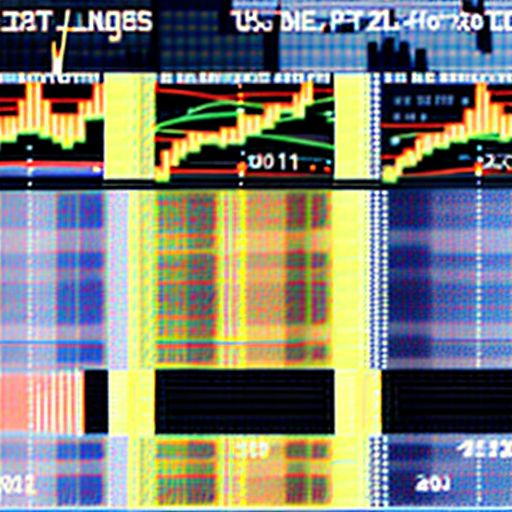Have you heard whispers of futures trading and how it can amplify your profits, but the whole concept seems shrouded in mystery? You’re not alone. For many beginners, the world of futures trading feels like a daunting labyrinth. This comprehensive guide will demystify Futures Trading For Beginners, providing you with the knowledge and confidence to navigate this potentially lucrative market.
Understanding the Fundamentals: What is Futures Trading?
In essence, futures trading involves contracts to buy or sell an asset—like commodities, currencies, or even financial instruments—at a predetermined price on a specific date in the future.
- Futures Contract: This legally binding agreement forms the heart of the transaction.
- Underlying Asset: This refers to the physical good or financial instrument upon which the futures contract is based. Examples include gold, oil, S&P 500 index, or even Bitcoin.
- Expiration Date: The predetermined date when the futures contract expires.
- Strike Price: This is the price at which you agree to buy or sell the underlying asset on the expiration date.
Key Differences Between Futures and Stock Trading
While both involve trading in the financial markets, several key differences set futures trading apart from traditional stock trading:
- Obligation: Futures contracts obligate you to buy or sell the asset, while stock trading offers flexibility.
- Leverage: Futures trading typically involves significantly higher leverage than stock trading, magnifying both profits and losses.
- Expiration Dates: Futures contracts come with predetermined expiry dates, unlike stocks that you can hold indefinitely.
trading.disneyaz.com/wp-content/uploads/2024/07/futures-trading-chart-669bb5.jpg" alt="Futures Trading Chart" width="512" height="512">Futures Trading Chart
Why Trade Futures? Potential Benefits and Risks
Advantages of Futures Trading
- Hedging Against Risk: Businesses often use futures to protect themselves from fluctuating prices of raw materials. For example, an airline company might lock in future fuel prices to shield themselves from price hikes.
- Leverage and Increased Profit Potential: Futures trading allows you to control a large contract value with a relatively small upfront investment, amplifying your potential profits.
- 24/7 Market Access: Certain futures markets operate around the clock, offering traders greater flexibility.
Risks Associated with Futures Trading
- High Risk Due to Leverage: While leverage can maximize profits, it can also magnify losses, potentially exceeding your initial investment.
- Complex Trading Strategies: Futures trading often involves intricate strategies requiring a deeper understanding of market dynamics.
- Potential for Large Losses: The volatile nature of some futures markets can lead to substantial losses, especially for inexperienced traders.
Essential Steps for Beginners in Futures Trading
- Educate Yourself: Thoroughly research and understand the intricacies of futures trading before risking your capital. Online courses, reputable brokers’ educational resources, and books can provide invaluable knowledge.
- Start with a Demo Account: Most brokers offer demo or simulated trading accounts. This risk-free environment allows you to practice trading strategies, familiarize yourself with the platform, and gain confidence before venturing into live trading.
- Choose a Reputable Broker: Opt for a regulated broker with a user-friendly platform, comprehensive educational resources, and excellent customer support. Compare fees, trading tools, and research offerings before making your decision.
- Develop a Trading Plan: Outline your financial goals, risk tolerance, preferred trading strategies, and entry and exit points. Having a well-defined plan will help you make disciplined trading decisions.
- Start Small and Manage Risk: Begin with a small investment amount and gradually increase your position size as you gain experience and confidence. Implement risk management tools like stop-loss orders to limit potential losses.
FAQs about Futures Trading For Beginners
1. How Much Money Do I Need to Start Futures Trading?
The required capital varies depending on the broker and the specific futures contracts you wish to trade. Some brokers have lower minimum deposit requirements, making it accessible for beginners to start with smaller amounts.
2. What are the Best Futures Contracts for Beginners?
Generally, beginners are advised to start with less volatile futures contracts such as index futures or currency futures. These markets tend to have greater liquidity and relatively smoother price movements.
3. Is Futures Trading Risky for Beginners?
Like any form of financial trading, futures trading involves inherent risks, especially for beginners. However, by gaining a solid understanding of the market, managing risk effectively, and starting with small positions, you can mitigate potential losses.
Conclusion: Embarking on Your Futures Trading Journey
Venturing into the world of futures trading can be both exciting and challenging. By arming yourself with knowledge, practicing diligently, and approaching the market with a cautious yet strategic approach, you can navigate this dynamic landscape. Remember, patience, discipline, and continuous learning are paramount to success in futures trading.
We encourage you to share your thoughts, questions, and experiences in the comments section below. Are you ready to take the next step in your trading journey? Explore our website for more in-depth articles and resources to enhance your understanding of futures trading and other financial markets.
